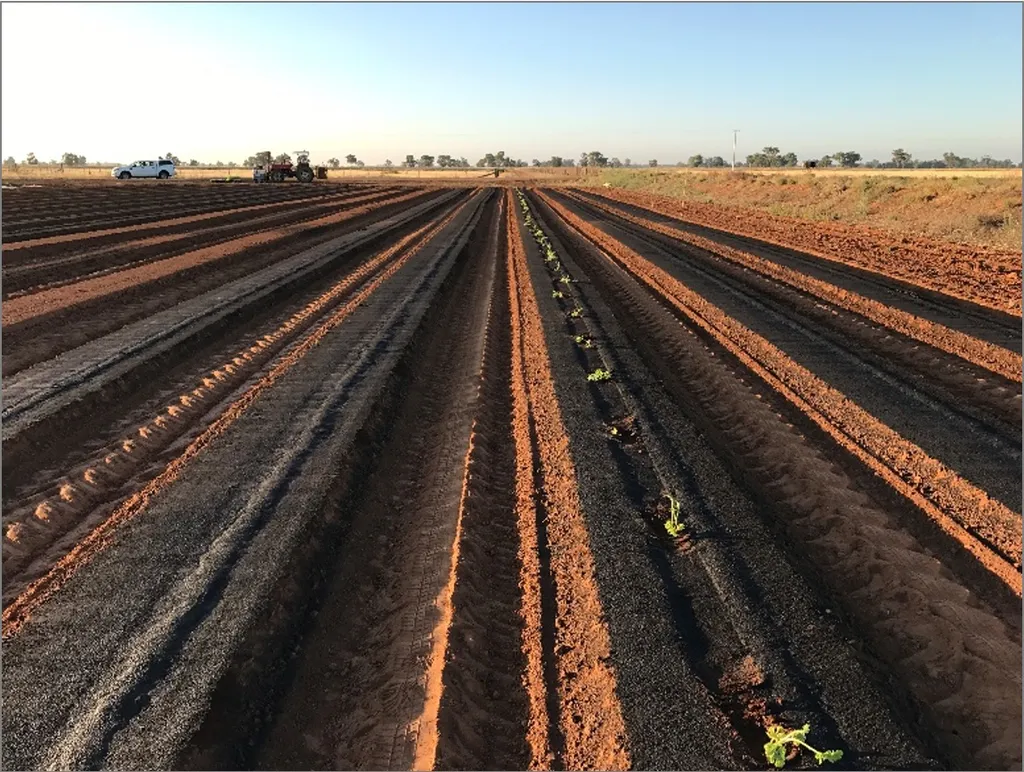In the heart of Massachusetts, a team of researchers led by Kerry Candlen at the University of Massachusetts Lowell has been cooking up a sustainable solution to a pressing agricultural problem: plastic waste. Their latest study, published in the journal *Advanced Sustainable and Renewable Energy* (formerly known as *Advanced Energy & Sustainability Research*), explores a novel approach to biodegradable mulch films that could revolutionize the way we think about agricultural plastics.
Plastic mulch films are a staple in modern agriculture, helping to conserve water, suppress weeds, and enhance crop yields. However, these films, typically made from non-biodegradable polyethylene, contribute significantly to plastic pollution. According to Candlen, “The accumulation of plastic waste in agriculture is a growing concern. We need sustainable alternatives that can perform just as well, if not better, than traditional plastics.”
Enter poly(butylene adipate‐co‐terephthalate) (PBAT), poly(lactic acid) (PLA), and an unlikely hero: soy waste. Candlen and her team have developed a biodegradable mulch film that combines these materials, with soy waste making up 10% of the blend. The results are promising. Accelerated aging tests showed that the soy-containing films exhibited earlier weight loss compared to films without soy, indicating enhanced hydrolysis and mineralization rates.
But the real surprise came from the field trials. Plants grown with the soy-containing films showed a remarkable 49% increase in height. “We believe the soy may be acting as a biostimulant, promoting plant growth,” Candlen explains. This dual benefit—enhanced biodegradability and improved plant growth—could be a game-changer for the agricultural industry.
The commercial implications are substantial. As the demand for sustainable practices grows, so does the need for innovative solutions like this biodegradable mulch film. The energy sector, in particular, stands to benefit from the development of biodegradable polymers that can reduce waste and lower the carbon footprint of agricultural practices.
Candlen’s research is just the beginning. The team is now exploring the interactions between biodegradable mulch films and plant responses under diverse environmental conditions. This work could lead to the optimization of mulch designs and applications, further advancing the use of bioplastics in agriculture.
As we look to the future, the potential for biodegradable polymers to reshape the agricultural landscape is immense. With continued research and development, we may soon see a world where plastic waste is a thing of the past, and sustainable practices are the norm. Candlen’s work is a significant step in that direction, offering a glimpse into a future where agriculture and sustainability go hand in hand.

